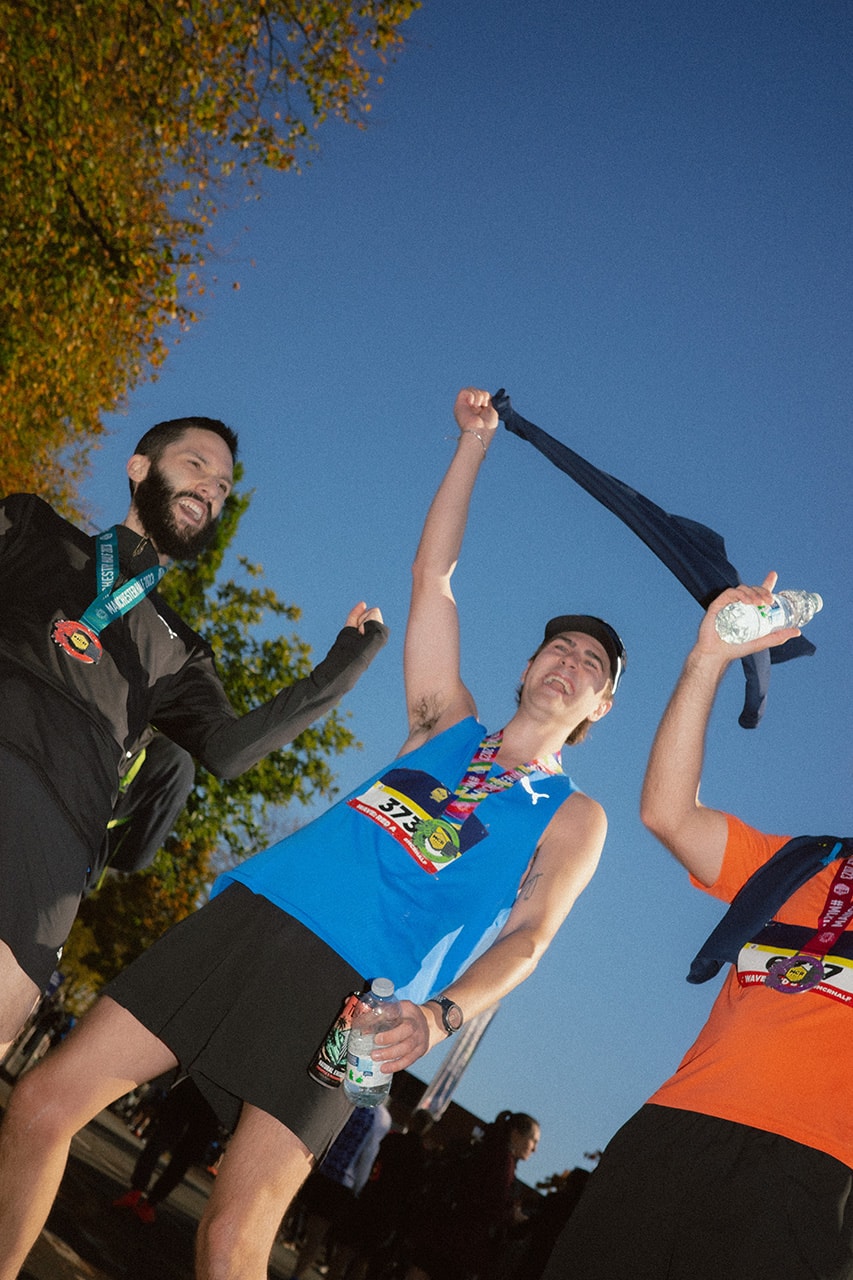The 21K Run For Fun is a thrilling and energizing event that promises excitement and enjoyment to participants. This event is a unique opportunity for individuals to challenge themselves physically and mentally while experiencing the thrill of running a half marathon.
Whether you are a seasoned runner or a beginner looking to try something new, this event offers a fun-filled and memorable experience. Participants can expect a well-organized and enjoyable event with a lively and supportive atmosphere. So lace up your running shoes and get ready to push your limits at the 21K Run For Fun!
Preparing For Success: Creating A Training Plan
When it comes to running a 21K race, preparation is key. An effective training plan ensures that you have the physical endurance and mental strength to conquer the race with confidence. Creating a well-rounded training plan involves setting goals, designing a personalized schedule, incorporating different types of runs, and including cross-training and strength exercises. In this article, we will explore each of these components in detail to help you prepare for success in the 21K Run For Fun.
Set Your Goals And Establish A Timeline
Setting clear and achievable goals is the first step towards success in any endeavor, and running a 21K race is no exception. Start by defining what you aim to accomplish in the race. Is your goal to finish within a certain time limit, improve your personal best, or simply complete the race without stopping? Establish a timeline that allows you sufficient time to train and gradually build up your endurance. Remember, setting realistic goals and giving yourself ample time will help prevent injury and burnout.
Design A Personalized Training Schedule
Once you have set your goals and established a timeline, it’s time to create a personalized training schedule. This schedule will guide you through your workouts and gradually increase your mileage to prepare you for the 21K race. Consider factors such as your current fitness level, availability of time, and other commitments when designing your schedule. Make sure to include rest days to allow your body to recover and adapt to the training load. Here is an example of a training schedule:
| Day | Activity | Distance |
|---|---|---|
| Monday | Rest | – |
| Tuesday | Interval Runs | 3-5 miles |
| Wednesday | Cross-training | – |
| Thursday | Tempo Runs | 4-6 miles |
| Friday | Rest | – |
| Saturday | Long Runs | 8-12 miles |
| Sunday | Easy Runs | 3-5 miles |
Incorporating Different Types Of Runs (tempo, Interval, Long)
To build endurance and improve speed, it’s important to incorporate different types of runs into your training plan. Tempo runs, which are performed at a comfortably hard pace, help increase your lactate threshold and improve your running economy. Interval runs involve alternating between fast sprints and slower recovery periods, which improve your aerobic capacity and anaerobic threshold. Long runs, on the other hand, gradually increase your mileage and enhance your endurance. Including these different types of runs in your training plan will make you a well-rounded runner and prepare you for the 21K race.
The Importance Of Cross-training And Strength Exercises
While running is the primary focus of your training plan, it’s crucial not to neglect cross-training and strength exercises. Cross-training activities such as cycling, swimming, or yoga help prevent overuse injuries and provide a break from the repeated impact of running. Additionally, incorporating strength exercises, such as squats, lunges, and planks, into your routine, will improve your overall strength, stability, and running efficiency. By incorporating cross-training and strength exercises into your training plan, you will enhance your performance and reduce the risk of injury during the 21K race.
Fueling Your Body: Nutrition Tips For Optimal Performance
In order to achieve peak performance during the upcoming 21K Run For Fun, it’s essential to fuel your body with the right nutrients. Whether you are a seasoned runner or a beginner, proper nutrition plays a vital role in maximizing your endurance and maintaining your energy levels throughout the race. In this article, we will explore some key nutrition tips to help you perform at your best during the race. From balancing macros and micros to pre-run meals and snacks, hydration strategies, and supplements for endurance athletes, we’ve got you covered.
Balancing Macros And Micros For Long-distance Running
When it comes to long-distance running, striking a balance between macronutrients (carbohydrates, proteins, and fats) and micronutrients (vitamins and minerals) is crucial for optimal performance. Here’s how you can ensure you’re getting the right balance:
- Carbohydrates: The main source of energy for endurance runners. Aim to consume complex carbohydrates sources such as whole grains, fruits, and vegetables. These slow-digesting carbs provide sustained energy throughout the race.
- Proteins: Essential for muscle repair and growth. Include lean sources of protein like chicken, fish, tofu, and legumes in your meals. Aim for a balanced protein intake to support muscle recovery.
- Fats: Provide a concentrated source of energy and aid in nutrient absorption. Focus on healthy fats like avocados, nuts, and olive oil. These fats also help in reducing inflammation in your body.
- Micronutrients: Include a wide variety of fruits and vegetables in your diet to ensure you’re getting a sufficient intake of vitamins and minerals. These nutrients support overall health and help in proper functioning of the body.
Pre-run Meals And Snacks That Provide Sustained Energy
What you eat before the race can have a significant impact on your performance. Choose pre-run meals and snacks that provide sustained energy to keep you going. Here are some ideas:
- Complex Carbohydrates: Opt for a balance of carbohydrates, proteins, and healthy fats. For example, a bowl of oatmeal topped with berries and a sprinkle of nuts can provide a good combination of nutrients.
- Bananas: A great source of potassium and carbohydrates, bananas can help prevent muscle cramps during the race. Grab one as a quick snack before your run.
- Whole Grain Toast: Spread some nut butter on whole grain toast to get a combination of carbohydrates and healthy fats. It’s a satisfying option that will keep you fueled up.
- Energy Bars: Look for energy bars that contain a mix of carbohydrates, proteins, and fats. These are convenient snacks to carry and can provide you with much-needed fuel for the race.
Hydration Strategies For Before, During, And After The Race
Staying hydrated is key to maintaining your performance and preventing dehydration during the race. Follow these hydration strategies:
- Before the Race: Start hydrating in the days leading up to the event. Aim to drink at least 8 cups (64 ounces) of water daily. Avoid excessive caffeine and alcohol which can dehydrate your body.
- During the Race: Drink water or electrolyte-rich sports drinks at regular intervals to replenish fluids and electrolytes lost through sweating. Take advantage of aid stations along the race route.
- After the Race: Rehydrate with fluids and electrolyte-rich beverages to replenish what you’ve lost. Include a source of carbohydrates and proteins to aid in recovery.
Supplements To Consider For Endurance Athletes
In addition to a well-balanced diet, certain supplements can support the needs of endurance athletes. Consider these supplements:
- Multivitamins: To ensure you’re meeting your micronutrient needs, especially if you have dietary restrictions or food intolerances.
- Electrolyte Supplements: These can be helpful during longer races to maintain electrolyte balance and prevent cramping.
- Omega-3 Fatty Acids: Provide anti-inflammatory benefits and support cardiovascular health. Consider fish oil or plant-based alternatives like flaxseed oil.
- Protein Supplements: If you struggle to meet your protein needs through food alone, protein supplements like whey or plant-based protein powders can be a convenient option.
Remember, it’s essential to consult with a healthcare professional or registered dietitian before starting any new supplements.
Building Mental Toughness: Strategies For Staying Motivated
Running a 21K race requires not just physical endurance, but also mental toughness. When your body starts to fatigue and doubts begin to creep in, it’s important to have strategies in place for staying motivated. In this blog post, we will explore effective techniques to help you develop a positive mindset, overcome self-doubt, find inspiration, and build mental resilience in your journey towards completing the 21K Run For Fun.
Developing A Positive Mindset And Visualization Techniques
A positive mindset is key to staying motivated and overcoming challenges during your 21K training. Visualizing success can be a powerful tool to help you stay focused and motivated. By creating vivid mental images of crossing the finish line and achieving your running goals, you can boost your confidence and reinforce positive thoughts.
To develop a positive mindset, try incorporating these strategies:
- Practice positive self-talk: Replace negative thoughts with encouraging and affirming statements such as “I am strong”, “I can do this”, and “I am making progress.”
- Set realistic goals: Break down your training into smaller milestones, celebrating achievements along the way.
- Find joy in the process: Focus on the journey, not just the end goal. Embrace the physical and mental benefits of running.
- Surround yourself with positive influences: Engage with uplifting running communities, read motivational books, or listen to podcasts that inspire you.
- Use visualization techniques: Spend a few minutes each day imagining yourself running effortlessly, feeling strong and confident.
Overcoming Self-doubt And Pushing Through Mental Barriers
Self-doubt is a common hurdle that can hinder progress while training for a 21K race. It’s essential to acknowledge these doubts and find strategies to overcome them. By implementing the following techniques, you can push through mental barriers and unlock your full potential:
- Challenge negative thoughts: When self-doubt creeps in, challenge those negative thoughts by reminding yourself of your past achievements and capabilities.
- Practice mindfulness: Stay present in the moment during training runs and races, focusing on your body’s sensations and the rhythm of your breathing. This helps quiet the mind and discourages negative thoughts from taking hold.
- Develop a mantra: Create a short, powerful phrase that you can repeat to yourself during challenging moments. For example, “I am strong, I am resilient” or “One step at a time.”
- Break it down: Rather than overwhelming yourself with the entire distance, break the race into smaller segments. Focus on conquering one mile at a time, celebrating each small victory.
Surrounding Yourself With A Supportive Community
Having a strong support system can significantly impact your motivation and mental toughness. Surrounding yourself with like-minded individuals who share your passion for running can foster a sense of belonging and provide encouragement when you need it most. Here are some suggestions for building a supportive community:
- Join a local running group or club: Connect with fellow runners in your area who can offer advice, training partners, and a sense of camaraderie.
- Participate in online running communities: Engage with online forums, social media groups, or platforms dedicated to running. You can share your experiences, ask questions, and find inspiration from other runners.
- Attend running events and races: Participating in local races or organized events allows you to meet and interact with runners of all levels. It’s a great opportunity to make connections and gain motivation from seeing others push their limits.
Finding Inspiration In Other Runners’ Stories
One of the most effective ways to boost your motivation is by finding inspiration in the stories of other runners. Hearing about their triumphs, struggles, and perseverance can give you the push you need to keep going. Here are some ways to seek inspiration:
- Read running memoirs or biographies: Dive into books that share the experiences of accomplished runners. Learn from their journeys and apply their lessons to your own.
- Follow running influencers and athletes on social media: Instagram, Twitter, and YouTube are home to numerous runners who share their experiences, training tips, and motivational stories. Engage with their content to gain inspiration and glean insights.
- Connect with fellow runners: Strike up conversations at races or events, or reach out to other runners online to learn about their experiences and share your own. Hearing about their challenges and successes can reignite your passion and motivation.
Building mental toughness for a 21K race is a journey in itself. By developing a positive mindset, overcoming self-doubt, surrounding yourself with supportive individuals, and drawing inspiration from other runners, you can stay motivated and overcome any mental barriers that come your way. Remember, the mental aspect of running is just as important as the physical, and with the right strategies, you can push through and achieve your running goals.

Credit: blog.stryd.com
Injury Prevention And Recovery: Taking Care Of Your Body
Participating in a 21K run is no small feat, and it’s important to take care of your body to avoid injuries and ensure a successful race. By incorporating injury prevention and recovery strategies into your training routine, you can keep your body in excellent shape and increase your overall performance. In this article, we will explore the importance of warm-up and cool-down routines, recognizing common running injuries and how to prevent them, seeking professional help for proper form and technique, as well as rest and recovery strategies to avoid burnout and enhance performance.
The Importance Of Warm-up And Cool-down Routines
Warm-up and cool-down routines play a vital role in injury prevention and performance enhancement. Before starting your run, it’s crucial to engage in dynamic stretching exercises that target the muscles you will be using during your run. This helps increase blood flow to the muscles, improve flexibility, and prepare your body for the intense physical activity that lies ahead. A proper warm-up routine can help prevent muscle strains, sprains, and other injuries.
Cooling down after your run is just as important as warming up. It allows your heart rate to gradually return to its normal rhythm and helps flush out waste products, such as lactic acid, from your muscles. Incorporating static stretches into your cool-down routine can help reduce muscle soreness and improve flexibility. Remember, a solid warm-up and cool-down routine can significantly contribute to your overall running performance.
Recognizing Common Running Injuries And How To Prevent Them
Running is a high-impact activity that can put stress on various parts of your body, making it important to recognize common running injuries and take steps to prevent them. Some common running injuries include:
| Injury | Symptoms | Prevention |
|---|---|---|
| Runner’s knee (patellofemoral pain syndrome) | Pain around the kneecap during or after running | Wear proper running shoes, gradually increase mileage, strengthen leg muscles |
| Plantar fasciitis | Heel pain, especially in the morning | Stretch calf muscles, wear supportive shoes, avoid sudden increases in mileage |
| Shin splints | Pain along the inside of the shin bone | Gradually increase mileage, wear proper shoes, strengthen calf muscles |
Preventing running injuries involves a combination of factors such as maintaining proper form and technique, using suitable running shoes, gradually increasing mileage, and listening to your body. It’s crucial to address any discomfort or pain early on to prevent minor issues from turning into more serious injuries.
Seeking Professional Help For Proper Form And Technique
Proper running form and technique can help reduce the risk of injury and improve overall running efficiency. Seeking professional help, such as consulting with a running coach or physical therapist, can provide valuable guidance in correcting any imbalances or flaws in your running mechanics. These professionals can analyze your gait, posture, and foot strike and provide tailored advice to help you optimize your running form. Incorporating their recommendations into your training routine can make a significant difference in your performance and injury prevention efforts.
Rest And Recovery Strategies To Avoid Burnout And Enhance Performance
Rest and recovery are essential components of training that should not be overlooked. Pushing your body to its limits without allowing time for adequate rest can lead to burnout and increased risk of injury. Here are some strategies to enhance your rest and recovery:
- Get enough sleep: Aim for seven to nine hours of quality sleep each night to support muscle repair and overall recovery.
- Include active recovery days: Incorporate low-impact activities such as cycling or swimming into your training schedule to promote blood flow and aid in muscle recovery.
- Listen to your body: Pay attention to any signs of fatigue or pain and adjust your training accordingly to avoid overexertion.
- Practice self-care: Engage in activities like foam rolling, stretching, and massage to alleviate muscle tension and promote relaxation.
By prioritizing rest and recovery, you allow your body the time it needs to repair, rebuild, and grow stronger. This ultimately leads to improved performance and a reduced risk of injuries as you prepare for the 21K run.
Race Day Strategies: Bringing It All Together
As race day approaches for the 21K Run For Fun, it’s crucial to have a solid plan in place to ensure a successful and enjoyable run. In this section, we will discuss various strategies that will help you conquer the race day challenges with ease. From pre-race rituals to pacing strategies, fueling and hydration plans, and post-race recovery tips, we’ve got you covered. Let’s dive in and bring it all together for your big day.
Pre-race Rituals To Calm Nerves And Focus The Mind
Before the race, it’s common to experience jitters and nervousness. However, implementing pre-race rituals can help calm your nerves and get you into a focused mindset. Some effective rituals include:
- Deep breathing exercises to relax your body
- Meditation or visualization techniques to mentally prepare yourself
- Listening to motivational music or podcasts
- Stretching and light warm-up exercises to activate your muscles
By incorporating these rituals into your race day routine, you’ll find yourself more centered and ready to tackle the challenge ahead.
Pacing Strategies For A Successful 21k Run
Pacing is key when it comes to running a half marathon. Going out too fast at the start can lead to burnout, while starting too slow may hinder your chances of achieving a personal best. To maintain an optimal pace throughout the race, consider the following strategies:
- Start at a comfortable pace that allows you to settle into a rhythm
- Divide the race into segments and gradually increase your speed as you progress
- Use a GPS watch or running app to monitor your pace and adjust if necessary
- Focus on maintaining a consistent effort rather than solely relying on pace
By adopting these pacing strategies, you’ll maximize your performance and finish the 21K run with a sense of accomplishment.
Fueling And Hydration Plans On Race Day
Nutrition and hydration play a crucial role in sustaining your energy levels during the race. It’s essential to have a well-thought-out fueling and hydration plan in place. Consider the following tips:
- Consume a balanced meal rich in carbohydrates and protein a few hours before the race
- Carry energy gels or snacks to refuel during the run
- Stay hydrated by drinking water or sports drinks at regular intervals
- Avoid trying new foods or drinks on race day to prevent stomach discomfort
Remember, everyone’s nutrition needs may vary, so it’s essential to experiment with different strategies during your training to find what works best for you.
Post-race Recovery Tips To Promote Healing And Prevent Injuries
After crossing the finish line, your body needs time to recover and heal. Implementing proper post-race recovery techniques can help you bounce back quickly and prevent injuries. Here are some essential tips:
- Walk or jog lightly to gradually cool down your body
- Perform gentle stretching exercises to improve flexibility and reduce muscle soreness
- Ice any areas of discomfort to minimize inflammation
- Take a warm bath or use a foam roller to relax your muscles
Prioritizing post-race recovery will not only aid in your physical healing but also set you up for future race success.
Frequently Asked Questions For 21k Run For Fun
How Should I Prepare For A 21k Run?
Preparing for a 21K run requires a training plan, proper nutrition, and rest. Gradually increase your mileage, cross-train, and include strength exercises for overall fitness. Stay hydrated, eat a balanced diet, and get enough sleep to optimize your performance.
What Is The Best Way To Avoid Muscle Cramps During A 21k Run?
To prevent muscle cramps during a 21K run, ensure proper hydration, warm-up before the race, and maintain a steady pace. Incorporate dynamic stretches and foam rolling into your training routine. Practice efficient running form and listen to your body, easing off if you feel any signs of cramping.
How Can I Stay Motivated During A 21k Race?
Staying motivated during a 21K race can be challenging. Set small, achievable goals along the way to keep yourself focused. Break the distance into segments, use positive self-talk, and visualize crossing the finish line. Find a running buddy or join a supportive community for added inspiration and accountability.
Conclusion
The 21K Run For Fun is an exhilarating event that combines physical fitness, mental endurance, and a sense of community. Whether you’re a seasoned runner or a beginner, this race offers a unique opportunity to challenge yourself, surpass your limits, and celebrate your accomplishments.
So lace up your running shoes, set new goals, and join us for an unforgettable experience that will leave you feeling empowered and inspired. Together, let’s enjoy the thrill of the 21K Run For Fun!
















Add Comment